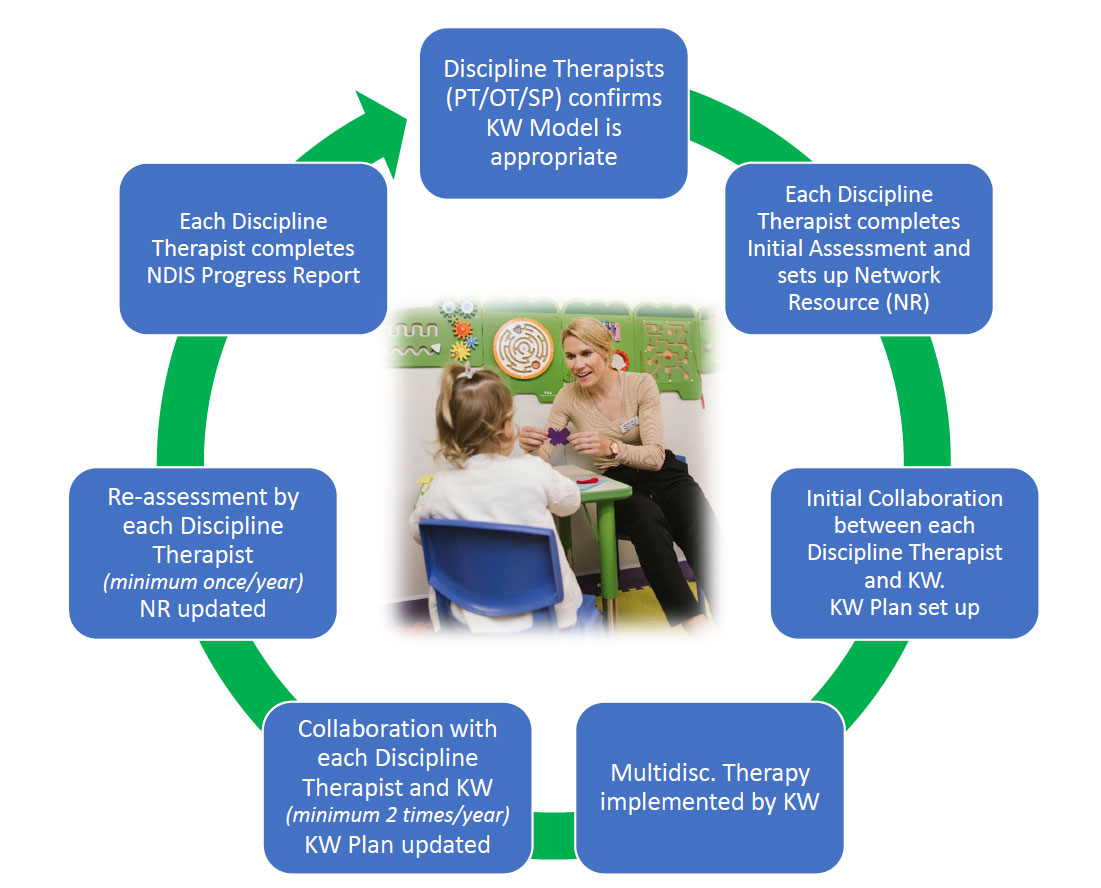NDIS
Key Worker Model
What is it?
A Key Worker is a Health Professional (Physiotherapist, Occupational Therapist or Speech Therapist), who acts as the primary Therapist and contact for the Participant and family. The ‘Key Worker’ will integrate all therapy tasks, information and advice from their team and work with the family, rather than multiple sessions with each therapy discipline separately. The KW may also act as your Lead Therapist to coordinate the Team Collaboration in setting up the annual Therapy Service Plan. In short, there are less people in the bubble!
KW model is best suited in cases where multiple therapy disciplines are required.
Annual Inclusions
Initial Discipline Specific Assessment (face-to-face 1:1)
Network Resource: Therapy plan with strategies to be used by the KW and the Participants family/network. It will be used as a reference in collaboration meetings and network communications (indirect).
Initial Collaboration: Discipline Therapist and KW 1:1 after Initial Assessment (indirect).
Quarterly Collaboration: Transdisciplinary group collaboration with ALL Therapists involved (indirect).
Discipline specific Re-assessments: 1:1 with each Discipline Therapist (direct).
Regular KW sessions at school, home or in the clinic (direct).
Benefits of KW Model:
Better communication and rapport with the child and family to ensure the whole support network have the resources, information and confidence to facilitate functional capacity.
Sustainable rural therapy service utilising local Allied Health professionals as KWs.
Expert input from Discipline Therapists in all therapy plans – OT/PT/ST will be instrumental in the assessment, program creation, planning and regular reviews of the therapy being delivered. If specialist input is required, this can be outsourced under this Model.
Cost effective: less travel charges as majority of KW will be local. Also accessing multiple supports in one session may mean less sessions making it more affordable.

